The 1970s were a time of upheaval, change, and experimentation, and the movies of the decade captured this energy like no other. Whether they reflected the gritty realities of life, explored counterculture ideals, or offered a window into the escapist dreams of the era, these films painted a vivid picture of what it meant to live through the ’70s. Here are 13 movies that sum up the vibe of the decade and why they still resonate today.
1. Apocalypse Now (1979)
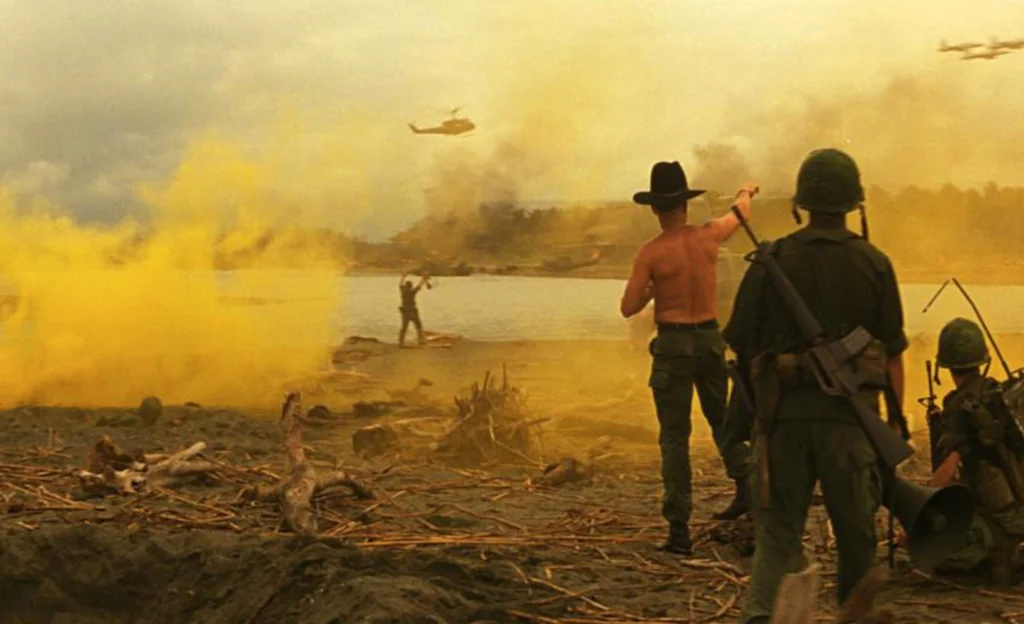
The Vietnam War loomed large over the ’70s, and no film captured its chaos and psychological toll better than Apocalypse Now. Francis Ford Coppola’s epic descent into the madness of war mirrored the cultural exhaustion and moral ambiguity of the era. The film’s surreal imagery and haunting performances from Martin Sheen and Marlon Brando made it unforgettable.
With its infamous production challenges and iconic lines like “I love the smell of napalm in the morning,” the film became a symbol of the decade’s ambition and recklessness. It encapsulated the tension between idealism and disillusionment that defined the ’70s.
2. The Godfather (1972)
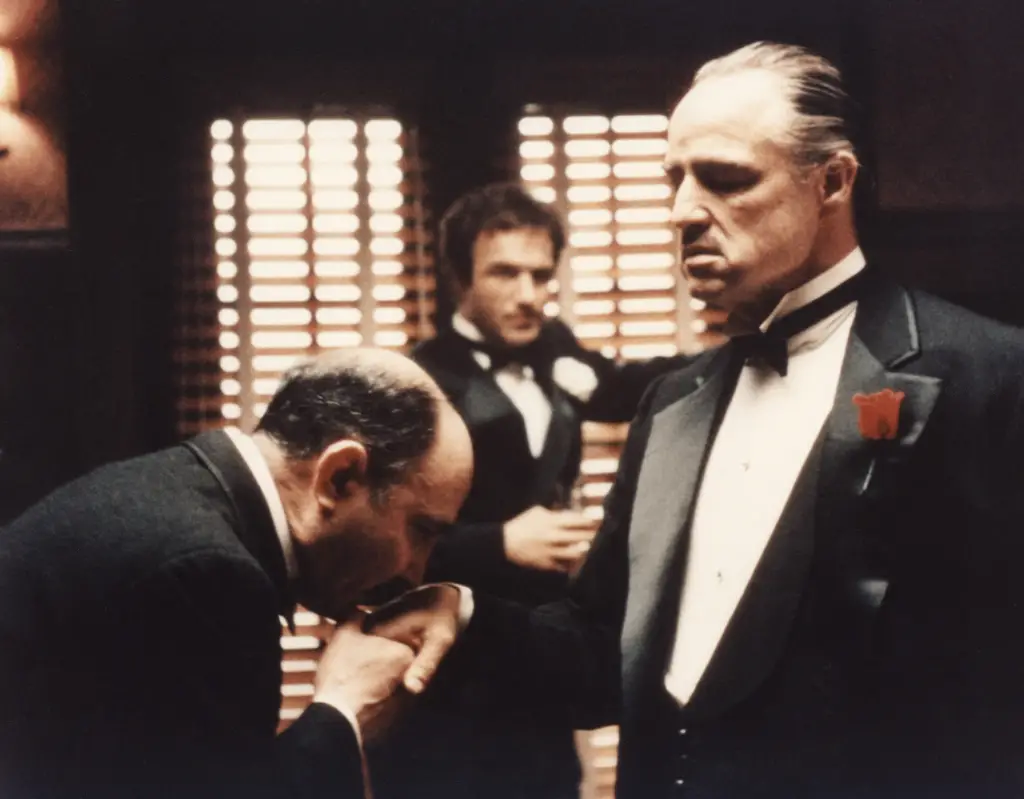
The Godfather epitomized the ’70s’ love of gritty realism and complex characters. Francis Ford Coppola’s epic tale of the Corleone family mirrored the societal tensions of the time, exploring power, loyalty, and moral ambiguity. It was about more than organized crime—it was about the cost of maintaining control in a world where traditions were breaking down.
The film’s somber tone and layered storytelling reflected the era’s skepticism and introspection. Its themes of family loyalty and corruption still resonate, but in the ’70s, it was particularly poignant as America grappled with the Vietnam War and political scandal.
3. Saturday Night Fever (1977)
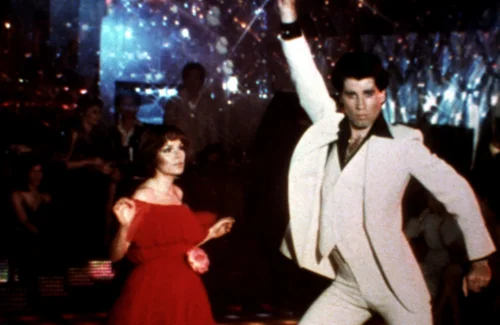
If you want a snapshot of the disco craze and working-class struggles of the ’70s, look no further than Saturday Night Fever. John Travolta’s Tony Manero represented the hopes and dreams of countless young people who escaped their everyday lives on the dance floor. With its flashy outfits and infectious Bee Gees soundtrack, the film became synonymous with the disco era.
Beyond the glitter, Saturday Night Fever also explored themes of identity, ambition, and societal expectations. It perfectly captured the high-energy vibe of the time while grounding its story in the real-life struggles of its characters.
4. Taxi Driver (1976)
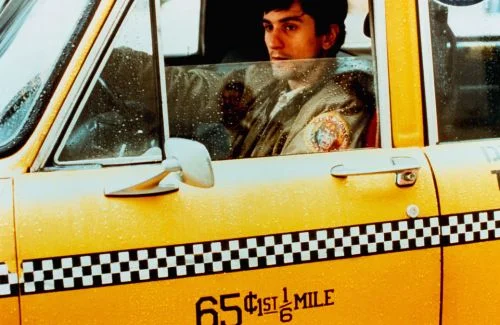
Martin Scorsese’s Taxi Driver was a gritty, unflinching look at urban alienation and the darker side of the human psyche. Robert De Niro’s portrayal of Travis Bickle, a disturbed cab driver in a crumbling New York City, reflected the cynicism and disillusionment that permeated the ’70s. It was a time when the American Dream seemed increasingly out of reach for many.
With its haunting visuals and unforgettable “You talkin’ to me?” scene, Taxi Driver captured the era’s distrust of institutions and the isolation felt by those left behind. It remains one of the defining films of the decade.
5. Norma Rae (1979)
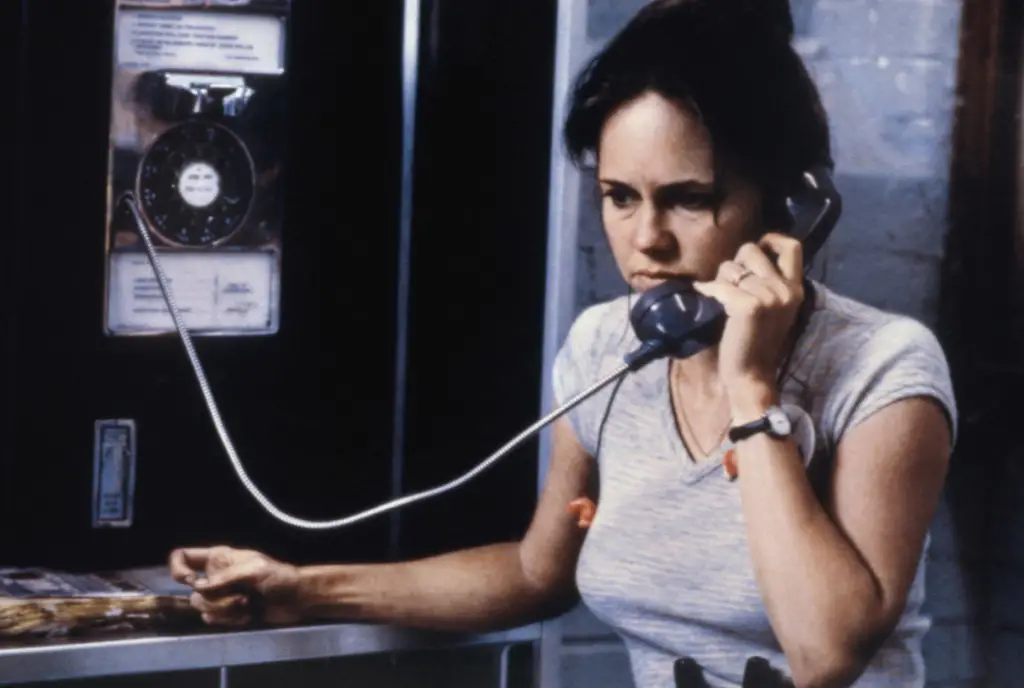
The 1970s were marked by social change, and Norma Rae captured the spirit of activism and the fight for workers’ rights. Sally Field’s portrayal of a factory worker who becomes a union organizer embodied the struggles of ordinary Americans trying to challenge powerful corporations.
The film’s focus on empowerment and collective action resonated with audiences during a time when the economy was in flux, and many workers were seeking better conditions. Its emotional depth and message of resilience made it a standout representation of the decade’s fight for justice.
6. Easy Rider (1969)
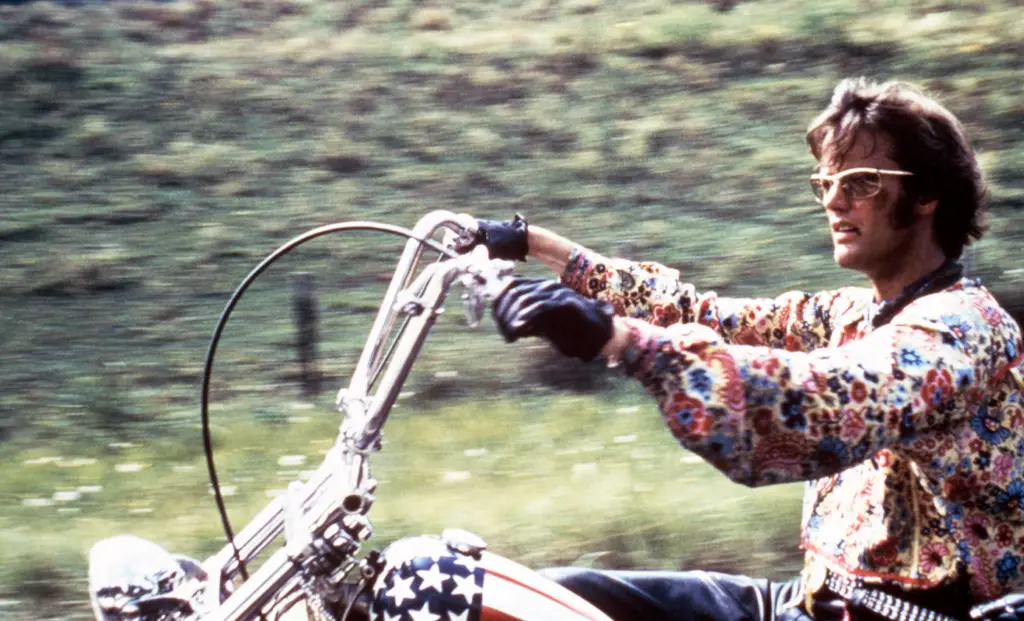
Yes, it technically debuted at the tail end of the ’60s, but Easy Rider set the tone for the rebellious, free-spirited vibe of the ’70s. Starring Peter Fonda and Dennis Hopper, this road movie followed two bikers on a cross-country journey to find freedom—and themselves. With its counterculture themes and tragic ending, it captured the disillusionment of a generation.
The soundtrack, featuring iconic songs like Steppenwolf’s “Born to Be Wild,” became the anthem of a new wave of filmmaking. Easy Rider wasn’t just a movie; it was a manifesto for the free-spirited, anti-establishment ideals that defined the early part of the decade.
7. All the President’s Men (1976)
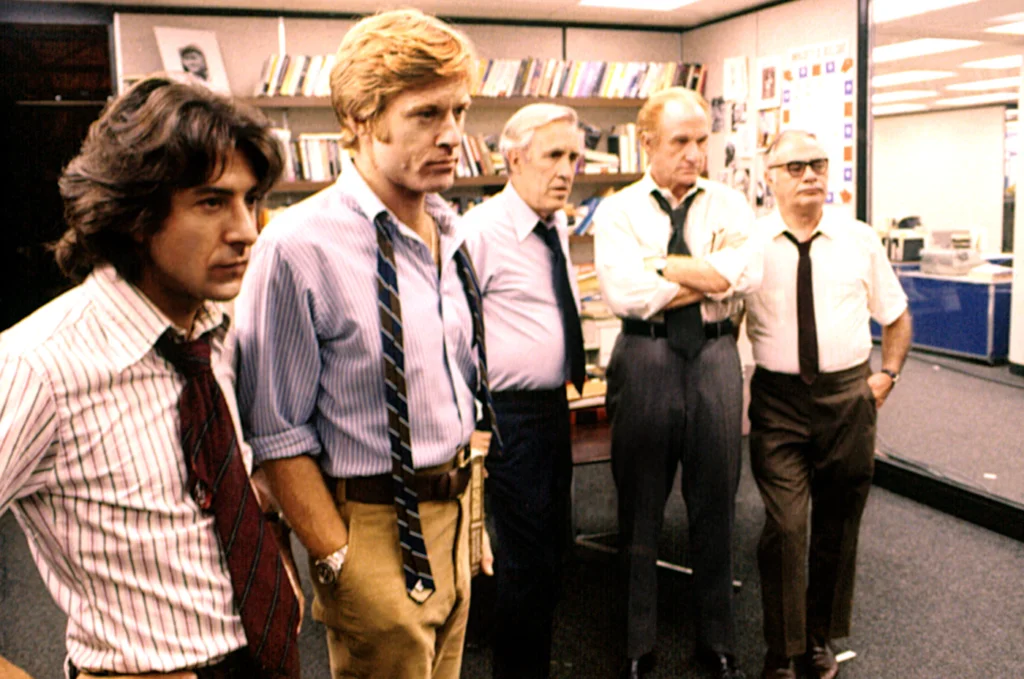
Nothing captured the political paranoia of the 1970s quite like All the President’s Men. This gripping drama about the Watergate scandal, starring Robert Redford and Dustin Hoffman as journalists Woodward and Bernstein, showcased the power of investigative reporting in holding leaders accountable.
The film reflected the post-Watergate skepticism of authority and institutions that defined the era. Its detailed, methodical approach mirrored the slow unraveling of trust in government, making it a perfect time capsule of the ’70s political landscape.
8. American Graffiti (1973)
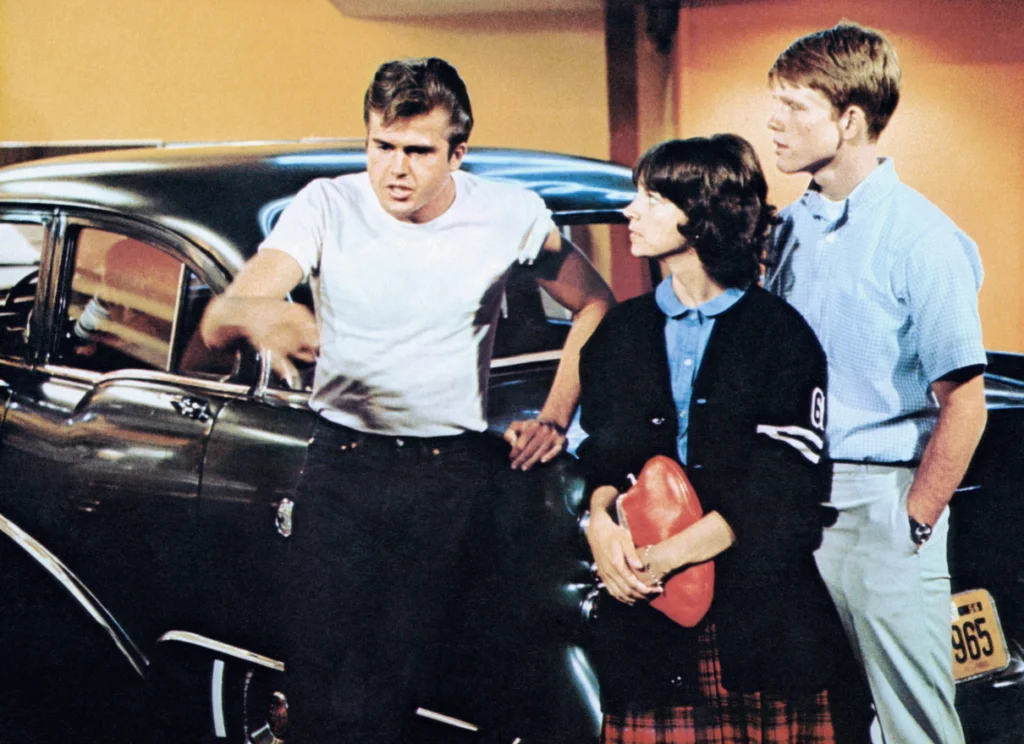
George Lucas’s American Graffiti was a nostalgic look back at the innocence of the early 1960s, but its themes of transition and self-discovery resonated deeply with ’70s audiences. The film followed a group of teenagers on one pivotal night, capturing the freedom and uncertainty of youth.
With its rock ’n’ roll soundtrack and slice-of-life storytelling, American Graffiti reflected the yearning for simpler times in a decade marked by rapid change. It was a love letter to the past, even as it acknowledged the inevitability of growing up.
9. Deliverance (1972)
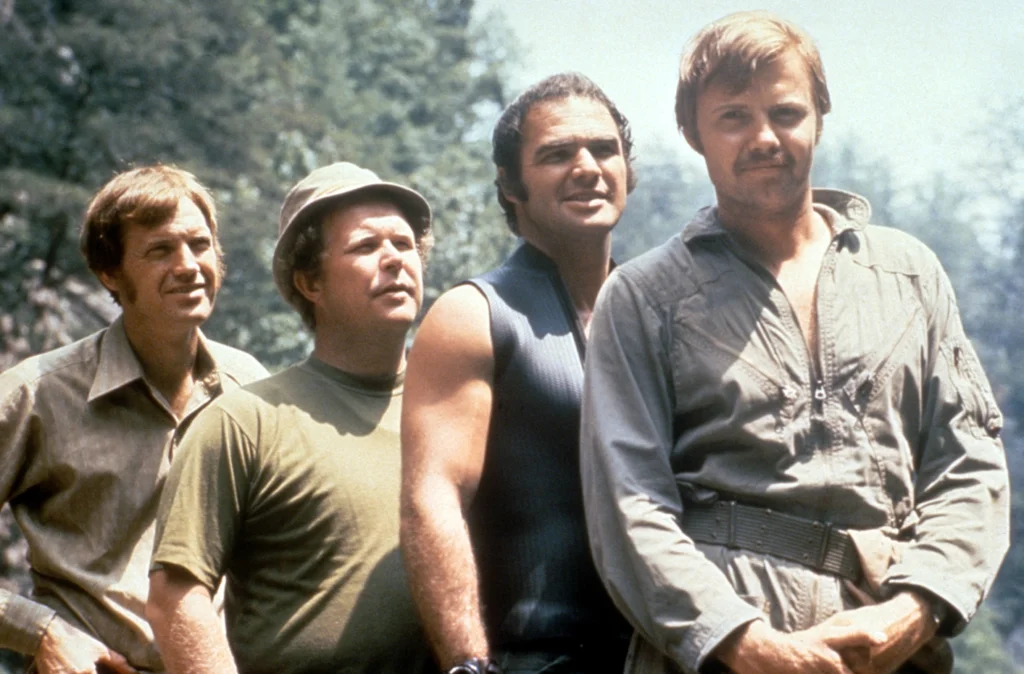
The raw and unsettling Deliverance symbolized the era’s fascination with survivalism and man’s confrontation with nature. Starring Jon Voight and Burt Reynolds, the film followed four men on a canoe trip that spiraled into a harrowing battle for survival in the remote wilderness.
Its infamous banjo duel and unflinching depiction of violence made it a conversation starter, while its themes of vulnerability and masculinity spoke to the societal shifts happening at the time. Deliverance was as much about the human condition as it was about the dangers of the untamed wild.
10. Serpico (1973)
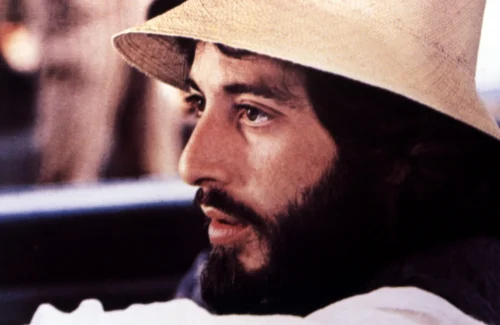
Al Pacino’s turn as Frank Serpico, an honest cop fighting corruption in the NYPD, captured the disillusionment with authority that defined the 1970s. The film, based on a true story, was a gritty exploration of one man’s battle against a system designed to suppress whistleblowers.
Serpico’s struggle for integrity in the face of overwhelming opposition resonated in an era when distrust of institutions was at an all-time high. It was both a thrilling crime drama and a reflection of the larger societal issues of the time.
11. Chinatown (1974)
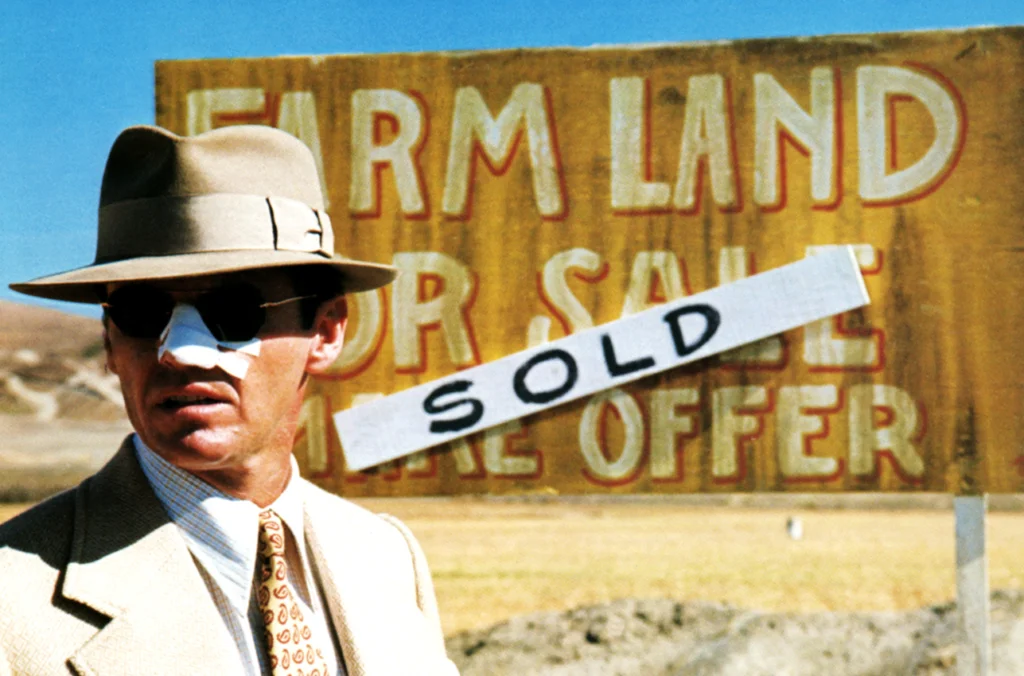
Roman Polanski’s Chinatown epitomized the moral ambiguity and cynicism of the 1970s. Jack Nicholson’s J.J. Gittes uncovered a web of corruption, greed, and betrayal in 1930s Los Angeles, but the themes of environmental exploitation and systemic rot felt distinctly modern.
The film’s dark ending and sharp commentary on power dynamics made it a quintessential ’70s movie. Its neo-noir style and intricate storytelling ensured it would remain a hallmark of the decade’s cinematic achievements.
12. The Last Picture Show (1971)
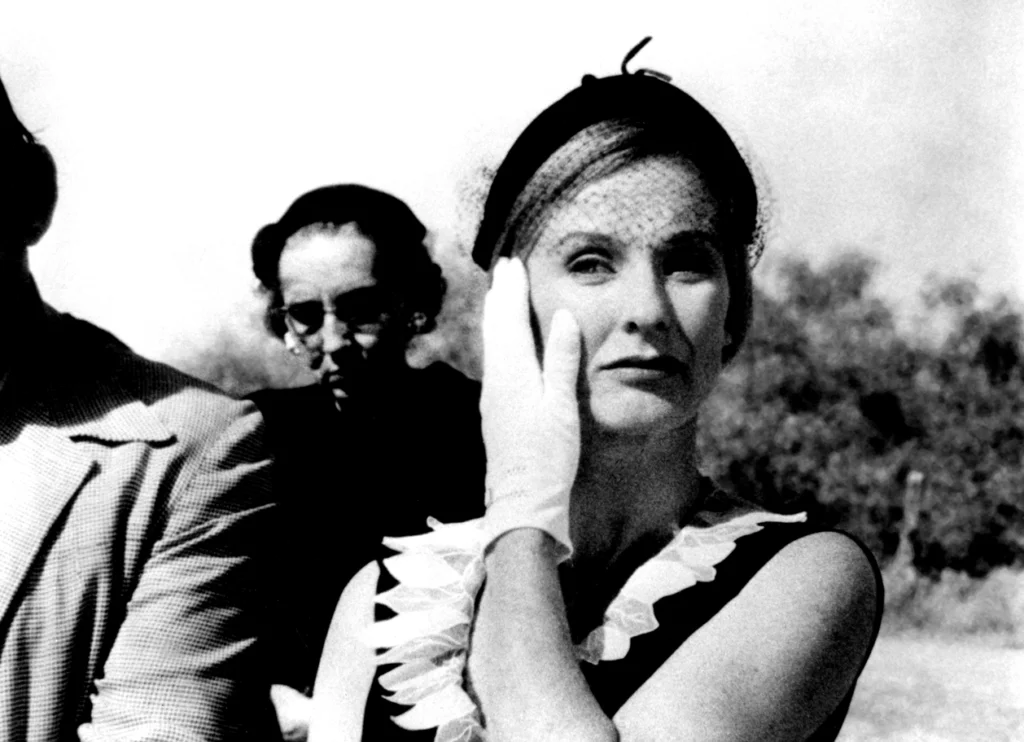
Peter Bogdanovich’s The Last Picture Show was a stark, melancholic portrayal of small-town America in decline. Shot in black and white, the film captured the loneliness and longing of its characters as they faced an uncertain future.
Its themes of nostalgia, loss, and change mirrored the larger cultural shifts of the 1970s, as America grappled with the end of an era and the challenges of a new one. It’s a haunting, beautiful film that perfectly encapsulates the mood of the decade.
13. Three Days of the Condor (1975)
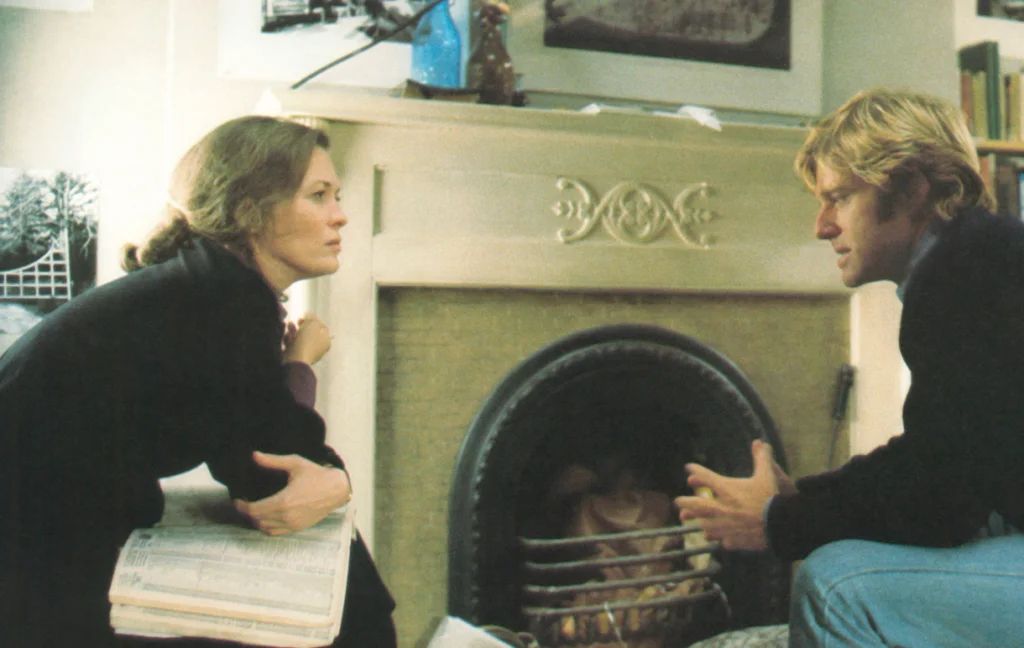
Spy thrillers took on a new edge in the ’70s, and Three Days of the Condor exemplified the era’s paranoia. Robert Redford starred as a CIA analyst who uncovers a conspiracy, forcing him to navigate a dangerous web of lies and deceit.
The film’s themes of mistrust and moral ambiguity reflected the post-Watergate atmosphere. It was both a thrilling tale and a sobering reminder of the fragility of truth in a time when secrets were everywhere.
These films didn’t just entertain—they defined the spirit of the ’70s, capturing its complexity, contradictions, and cultural shifts. They remain iconic reminders of a decade that changed the world—and cinema—forever.


